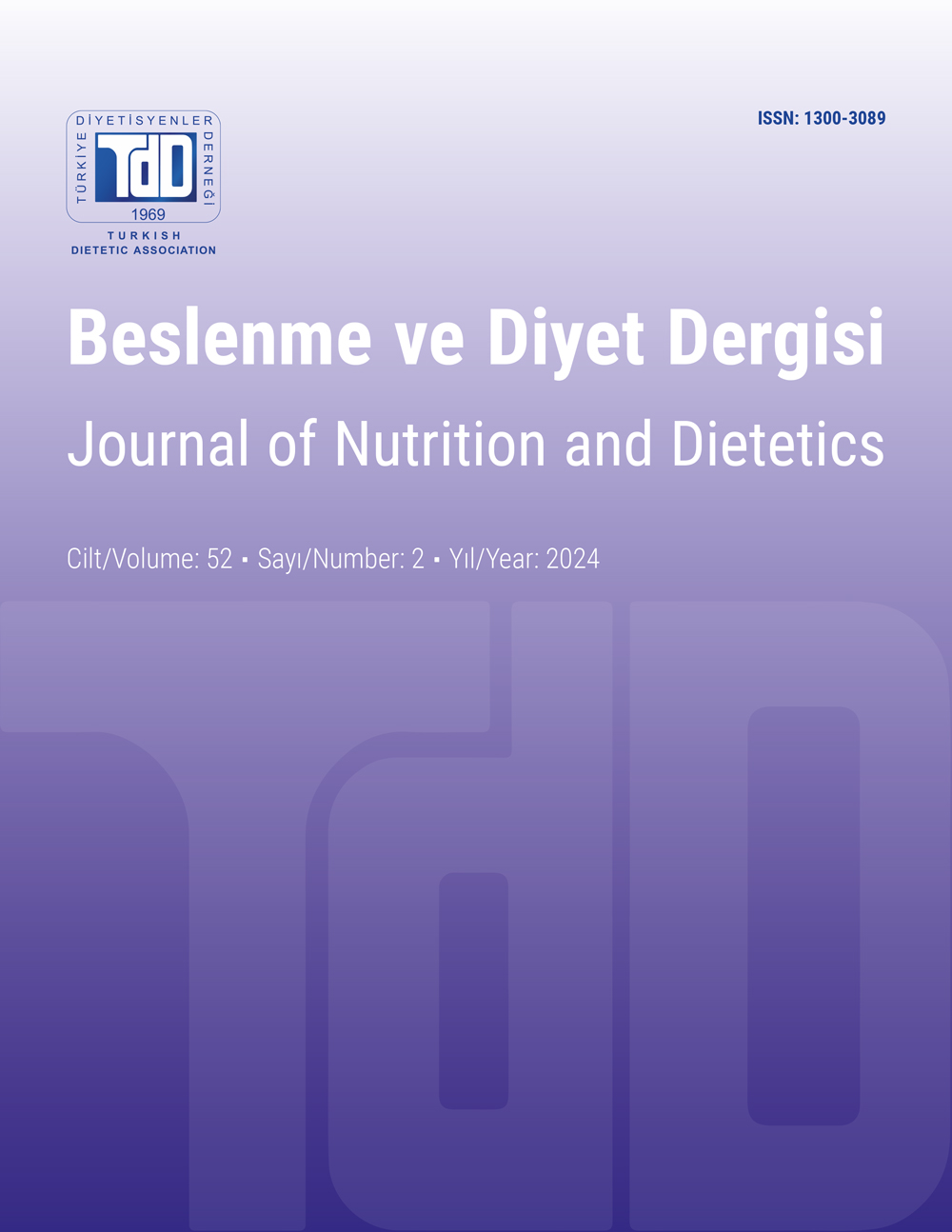The Children’s Power of Food Scale Short Form: Turkish Validity and Reliability Study
DOI:
https://doi.org/10.33076/2024.BDD.1876Keywords:
Hedonic hunger, Children’s Power of Food Scale-9 (C-PFS-9), Validity, ReliabilityAbstract
Aim: This study aimed to translate, validate, and determine the reliability of the nine-item Turkish Children’s Power of Food Scale-9 (C-PFS- 9), which assesses hedonic hunger.
Subjects and Method: The sample of the study consisted of 352 adolescents (10-15 years old, 175 boys, 177 girls). Data were collected by the researcher using a questionnaire and face-to-face interviews. The questionnaire included general information (age, sex, health status), family information (age, education and employment status of parents), anthropometric measurements (height, body weight), the C-PFS- 9 and the Yale Eating Addiction Scale for Children 2.0 (YFAS-C 2.0) Confirmatory factor analysis, internal consistency/reliability analysis and test-retest reliability analysis were used to determine the validity and reliability of the scale.
Results: The fit indices calculated as a result of confirmatory factor analysis were minimum discrepancy of confirmatory factor analysis/degrees of freedom (Cmin/df)= 3.754, goodness of fit index (GFI)=0.941, adjusted goodness of fit index (AGFI)= 0.889, and root mean square error of approximation (RMSEA)=0.079, and it was confirmed that the 9-item scale consisted of three sub-dimensions [Food Available (FA), Food Present (FP) and Food Taste (FT)]. The Cronbach’s alpha coefficient of C-PFS-9 was found to be 0.819 for the overall scale and, 0.735, 0.669, 0.598 for the FA, FP and FT sub-dimensions, respectively. It was found that there was a positive correlation between the score of the C-PFS-9 and the YFAS-C 2.0 (p<0.001).
Conclusion: The results of the study showed that the Turkish version of the C-PFS-9 is a valid and reliable tool for the assessment of hedonic hunger for the Turkish adolescent population.

